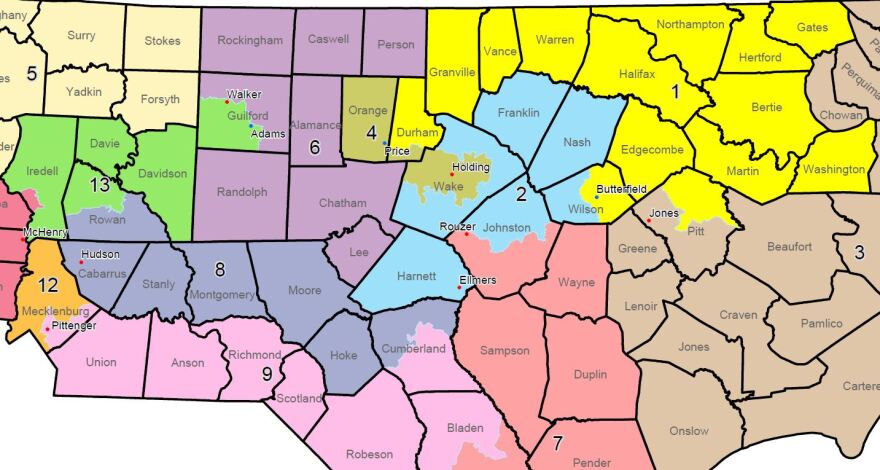Attorneys for North Carolina say lawmakers carefully followed a court order in drawing a new congressional map that does not use race as the dominant factor. In new court filings, the state argues those who sued over the old map have failed to show the new one is a gerrymander of any kind. WFAE’s Michael Tomsic joined Mark Rumsey to discuss the latest.
How is the state making its case?
North Carolina’s attorneys say it’s simple. The federal court struck down the 2011 congressional redistricting plan because lawmakers put too much emphasis on racial quotas. So in the new map, lawmakers didn’t factor in race at all. They stuck to other redistricting criteria, including keeping counties whole and keeping one party in power.
Right, 10 districts still favor Republicans and only three favor Democrats. Is that kind of blatant partisan advantage an acceptable criteria?
Those suing argue it’s not. They say the new map is too political of a gerrymander.
But North Carolina’s attorneys say it’s not a gerrymander at all. As far as how it looks, the boundaries are about as compact and normal as a redistricting plan can get. And regarding the political makeup of the districts, the state points out the U.S. Supreme Court has never struck down a gerrymander on political grounds. It’s only when race plays too big a factor that it becomes illegal.
Hence the state saying race played no factor here.
Exactly. Now the plaintiffs contend ignoring race altogether is not the right answer. They point out African-American voters now make up a much smaller percentage of 12th congressional district, for example, which includes Charlotte. The numbers are down from 51 percent to 36 percent there.
But state attorneys say that’s a byproduct of following the court’s order. In essence, they say they drew that district to favor Democrats, and there's still a relatively high percentage because a large number of African-American Democratic voters live in Mecklenburg County.
There’s been so much back and forth in this case. What’s next?
The plaintiffs will file a response to the state, and then it’s up to the judges.
Meanwhile, all the other races on the primary ballot go forward like normal. It’s only votes for U.S. House that are pushed back to June.





